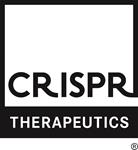Press Release
CRISPR Therapeutics Presents Data at the 2024 American Society of Hematology (ASH) Annual Meeting
-Preliminary data demonstrate that CTX112™ has the potential to provide meaningful clinical benefit with a well-tolerated safety profile using a standard lymphodepletion protocol-
-Company announced that the
-CTX112 is also in a Phase 1 clinical trial in systemic lupus erythematosus (SLE), with the potential to expand into additional autoimmune indications in the future-
-Company expects to provide a broader update across oncology and autoimmune indications in mid-2025-
“We are excited by these encouraging results on safety and efficacy for CTX112, which demonstrate the potential of an allogeneic CAR T treatment to produce complete remissions in heavily pre-treated patients,” said
“We are very encouraged by the progress and early clinical data from CTX112, which could result in better outcomes for patients,” said
CTX112 Trial Overview
The Phase 1/2 clinical trial is an open-label, multicenter study evaluating the safety and efficacy of CTX112 in relapsed or refractory (R/R) B-cell malignancies. Eligible disease subtypes include large B-cell lymphoma (LBCL), follicular lymphoma (FL) grade 1-3a, marginal zone lymphoma (MZL), and mantle cell lymphoma (MCL). CTX112 was infused after a standard course of lymphodepleting chemotherapy (3 days of 30 mg/m2 fludarabine and 500 mg/m2 cyclophosphamide).
Data were presented from 12 subjects treated during the dose escalation with CTX112 doses ranging from 30 x 106 (Dose Level [DL] 1) to 600 x 106 (DL4) CAR+ T cells. The study population was enriched for patients with high-risk characteristics, including: 1) primary refractory disease or early relapse to first-line therapy (75%); 2) high tumor burden (SPD > 4000 mm2, 50%); and 3) high disease prognostic index score (IPI, FLIPI, MZL-IPI ≥3) or elevated lactate dehydrogenase (75%).
Safety
CTX112 was well tolerated across all dose levels. The adverse events of interest are shown in the table below.
- There were no reported dose limiting toxicities (DLTs) and no reported Grade ≥3 infections. All grade 3 or 4 cytopenias (i.e., neutropenia, thrombocytopenia, anemia) following lymphodepleting chemotherapy resolved to Grade 2 or better within 1 month of CTX112 infusion. There were no reported cases of Graft versus Host Disease (GvHD),
- All cases of cytokine release syndrome (CRS) and immune effector cell-associated neurotoxicity syndrome (ICANS) were Grade 1 or 2 per the
American Society for Transplantation andCellular Therapy (ASTCT) criteria. These low-grade CRS and ICANS events followed standard toxicity management protocols.
Table 1. Summary of Adverse Events of Interest
| Cell dose (CAR+ T cells) | DL1 30x106 N=3 | DL2 100x106 N=3 | DL3 300x106 N=3 | DL4 600x106 N=3 | Total N=12 | |||||
| Gr1-2 | Gr ≥3 | Gr1-2 | Gr ≥3 | Gr1-2 | Gr ≥3 | Gr1-2 | Gr ≥3 | Gr1-2 | Gr ≥3 | |
| CRS, n (%) | 1 (33) | 0 | 2 (67) | 0 | 1 (33) | 0 | 3 (100) | 0 | 7 (58) | 0 |
| ICANS, n (%) | 0 | 0 | 1 (33) | 0 | 1 (33) | 0 | 2 (67) | 0 | 4 (33) | 0 |
| Infections, n (%) | 1 (33) | 0 | 0 | 0 | 2 (67) | 0 | 2 (67) | 0 | 5 (42) | 0 |
Clinical Efficacy
CTX112 produced responses at all dose levels. Disease assessment was performed by investigator review according to the Lugano criteria.
Table 2. Summary of Clinical Efficacy
| Cell dose (CAR+ T cells) | DL1 30x106 N=3 | DL2 100x106 N=3 | DL3 300x106 N=3 | DL4 600x106 N=3 | Total N=12 |
| Objective Response Rate (ORR), n (%) | 2 (67) | 2 (67) | 2 (67) | 2 (67) | 8 (67) |
| Complete Response Rate (CRR), n (%) | 1 (33) | 2 (67) | 1 (33) | 2 (67) | 6 (50) |
| Partial Response Rate, n (%) | 1 (33) | 0 | 1 (33) | 0 | 2 (17) |
- Objective and complete responses were seen at all dose levels and in all treated NHL subtypes (i.e., FL, MZL, MCL and LBCL).
- Responses were also seen in patients with poor prognostic factors including primary refractory disease, early relapse, and high baseline tumor burden (e.g., SPD > 4000 mm2).
- Five patients (of the 12 treated) have achieved responses lasting for more than 6 months, including one patient whose 6-month response was confirmed after the data cut-off date. One patient treated at DL1 remains in complete remission over a year after initial CTX112 infusion. The clinical efficacy of CTX112 is supported by a clearly differentiated pharmacokinetic profile for an allogeneic CAR T cell therapy.
- The mean peak concentration and total exposure were significantly higher at DL3 and DL4 vs. DL1 and DL2. This dose dependence suggests the possibility of deeper and more durable responses as the trial moves from dose escalation to dose optimization.
- Comparing DL3, the addition of Regnase-1 and TGFβR2 edits results in 7-fold higher peak concentration (Cmax) and 9.7-fold higher mean area under the curve (AUC) for CTX112 relative to CTX110®. Furthermore, at DL4, both Cmax and AUC are showing significantly more consistent and predictable increases. This suggests that the novel CRISPR/Cas9 potency edits are leading to higher CAR T cell expansion and functional persistence without enhanced or increased lymphodepleting chemotherapy doses.
These preliminary data demonstrate that CTX112 has the potential to provide meaningful clinical benefit with a well-tolerated safety profile. Given the inherent difficulties of manufacturing a CAR T therapy from a patient’s own diseased cells, allogeneic cellular therapy approaches have greater potential to address the unmet need in this patient population. These promising findings underscore the potential of allogeneic cell therapies to offer a transformative option for patients, and we remain committed to advancing this innovative approach to address the significant unmet medical need in this area.
Regenerative Medicine Advanced Therapy (RMAT) Designation
Established under the 21st Century Cures Act, RMAT designation is a dedicated program designed to expedite the drug development and review processes for promising regenerative medicine pipeline products. A regenerative medicine therapy is eligible for RMAT designation if it is a cell therapy, therapeutic tissue engineering product, human cell and tissue product or any combination product of such therapies that is intended to treat, modify, reverse or cure a serious or life-threatening disease or condition, and preliminary clinical evidence indicates that the drug or therapy has the potential to address unmet medical needs for such disease or condition. Similar to Breakthrough Therapy designation, RMAT designation provides the benefits of intensive FDA guidance on efficient drug development, including the ability for early interactions with FDA to discuss surrogate or intermediate endpoints, potential ways to support accelerated approval and satisfy post-approval requirements, potential priority review of the biologics license application (BLA) and other opportunities to expedite development and review.
About CTX112
CTX112 is a next-generation, wholly-owned, allogeneic CAR T product candidate targeting Cluster of Differentiation 19, or CD19, which incorporates edits designed to evade the immune system, enhance CAR T potency and reduce CAR T exhaustion. CTX112 is being investigated in an ongoing clinical trial designed to assess safety and efficacy of the product candidate in adult patients with relapsed or refractory CD19-positive B-cell malignancies who have received at least two prior lines of therapy. In addition, CTX112 is being investigated in an ongoing clinical trial designed to assess safety and efficacy of the product candidate in adult patients with system lupus erythematosus.
About
Since its inception over a decade ago,
CRISPR Special Note Regarding Forward-Looking Statement
Statements contained in this press release regarding matters that are not historical facts are “forward-looking statements” within the meaning of the Private Securities Litigation Reform Act of 1995. Because such statements are subject to risks and uncertainties, actual results may differ materially from those expressed or implied by such forward-looking statements. Such statements include, but are not limited to, statements regarding any or all of the following: (i) CRISPR Therapeutics’ preclinical studies, clinical trials and pipeline products and programs, including, without limitation, manufacturing capabilities, status of such studies and trials, potential expansion into new indications and expectations regarding data, safety and efficacy generally; (ii) the clinical data being presented at the 2024 ASH Annual Meeting; (iii) discussions with regulatory authorities related to product candidates under development by
This press release discusses CRISPR/Cas9 gene editing investigational therapies and is not intended to convey conclusions about efficacy or safety as to those investigational therapies or uses of such investigational therapies. There is no guarantee that any investigational therapy will successfully complete clinical development or gain approval from applicable regulatory authorities.
Investor Contact:
+1-617-307-7503
susan.kim@crisprtx.com
Media Contact:
+1-617-315-4167
rachel.eides@crisprtx.com
![]()
Source: CRISPR Therapeutics AG


